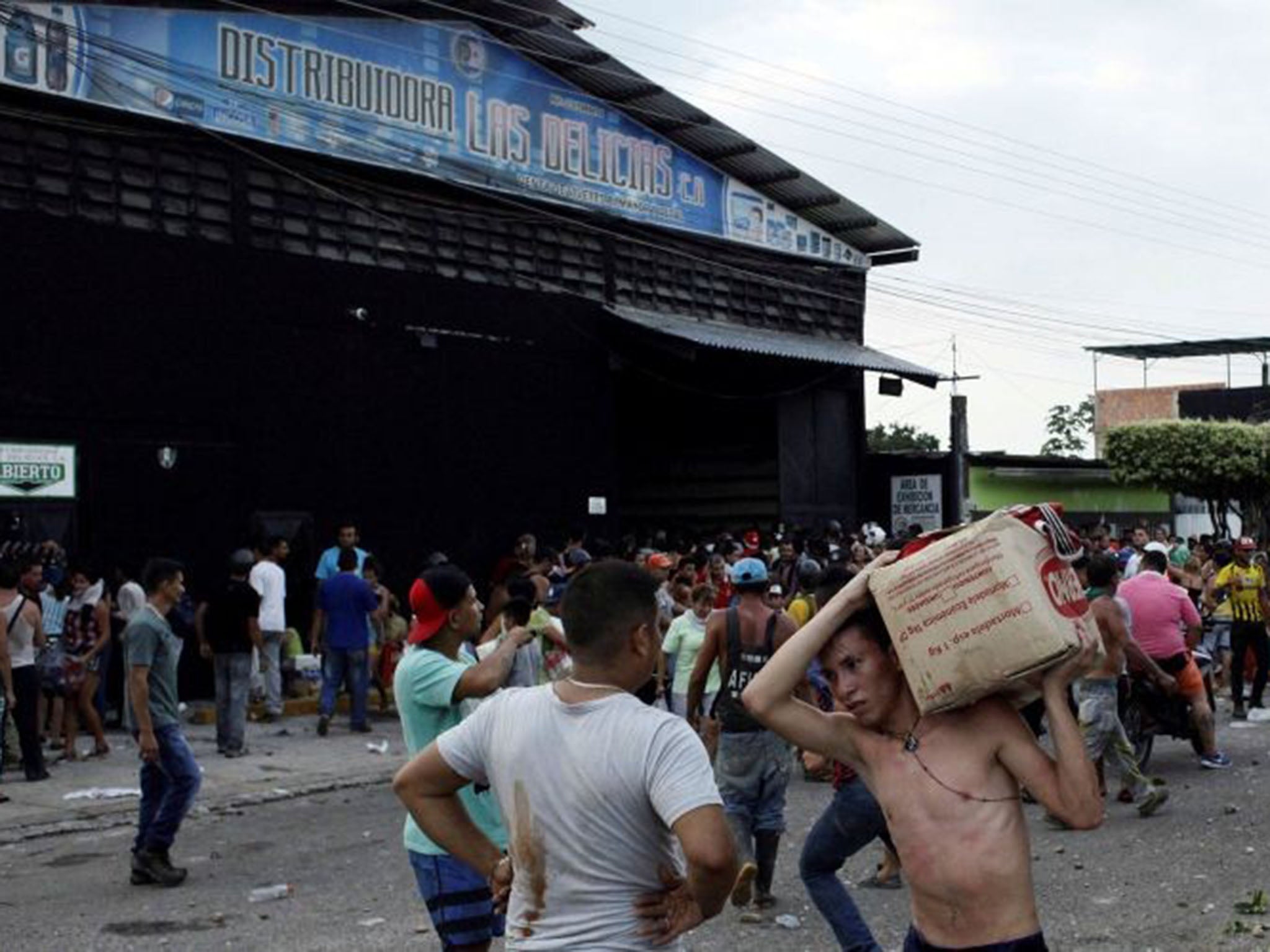Venezuela postpones scrapping biggest banknote after plane carrying cash fails to arrive in country
President Nicolas Maduro claims the planes were victims of 'sabotage'

Your support helps us to tell the story
From reproductive rights to climate change to Big Tech, The Independent is on the ground when the story is developing. Whether it's investigating the financials of Elon Musk's pro-Trump PAC or producing our latest documentary, 'The A Word', which shines a light on the American women fighting for reproductive rights, we know how important it is to parse out the facts from the messaging.
At such a critical moment in US history, we need reporters on the ground. Your donation allows us to keep sending journalists to speak to both sides of the story.
The Independent is trusted by Americans across the entire political spectrum. And unlike many other quality news outlets, we choose not to lock Americans out of our reporting and analysis with paywalls. We believe quality journalism should be available to everyone, paid for by those who can afford it.
Your support makes all the difference.Venezuela has suspended a decision to scrap the use of its 100-bolivar note until the New Year after three planes transporting large notes failed to arrive.
President Nicolas Maduro said the planes, some of hundreds which have ferried large denomination notes to the cash strapped country over the past year, had been a victim of “sabotage” but did not provide further details.
In a televised address, he said the “new logistics” of rolling out the 500, 2,000 and 20,000 bolivar notes meant their launch would have to wait.
The surprise decision to pull the 100-bolivar note in the country which is gripped by hyperinflation left the country largely without cash, sparking protests and looting.
The note had been the country’s largest denomination until inflation meant its value dropped to just two US cents – down from 10 cents at the start of the year.
All week, Venezuelans waited in long lines to deposit their soon-to-be worthless 100-bolivar notes in banks before the bill went out of circulation on Friday.
But as the replacement bills are yet to arrive at banks or ATMs people have been forced to rely on credit cards and bank transfers or are forced to use large bundles of smaller bills which are worth less than a penny each.
The chaos and confusion soon turned to anger with authorities saying there were protests and looting on Friday and early Saturday in at least six cities.
In the north-western city of Maracaibo police put down looting near a bank building and in the eastern state of Bolivar mobs sacked several businesses.
Young men waved their 100-bolivar notes in the air chanting “they’re useless” and then ran from police who fired tear gas canisters. Dozens have been arrested.
Caracas resident, Lucrecia Morales said: “Our children are going hungry.
“We are parents who earn money with the sweat off our brows. And now they say it is worthless? We need a solution.”
In addition to restoring the country’s old currency, Mr Maduro also announced the closure of the border with Colombia and Brazil until 2 January.
He claimed it was in order to thwart “mafias” who hoard bolivar but in reality many ordinary people regularly travel over the border for the basic supplies they cannot find in Venezuela.
Many Venezuelans defied the closures and knocked down barricades set up on the bridge between Urena, Venezuela and Cucuta, Colombia to cross over to buy food.
The mafia claim lead to mockery by Mr Maduro’s critics who scoffed at the idea that gangsters would want to hide their money in the world’s fastest devaluing currency.
The currency chaos has prompted a fight to have Mr Maduro impeached by the opposition but was blocked by the Maduro-controlled National Electoral Council (CNE) in October after it claimed the opposition had committed fraud in the initial petition drive.
When Mr Maduro succeeded the late Hugo Chavez in 2013 he claimed that “economic war” by Western governments was to blame for Venezuela’s economic woes but the crash in the price of oil has meant the leftist government’s welfare spending has brought the country to breaking point.
Additional reporting by AP
Subscribe to Independent Premium to bookmark this article
Want to bookmark your favourite articles and stories to read or reference later? Start your Independent Premium subscription today.
Join our commenting forum
Join thought-provoking conversations, follow other Independent readers and see their replies
Comments